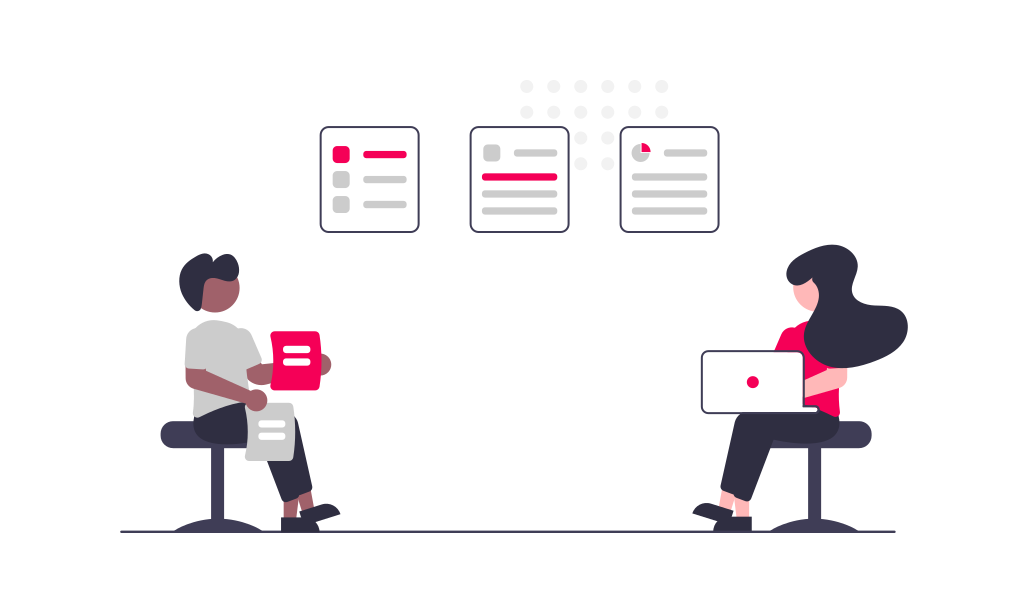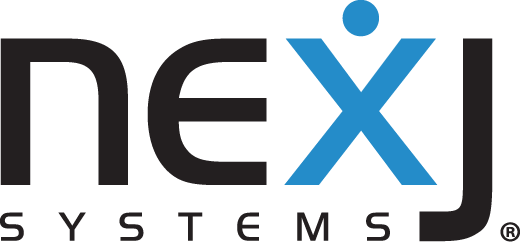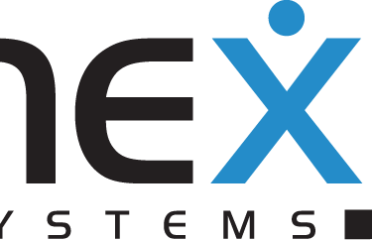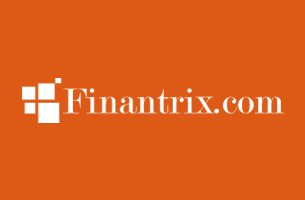
CRM for Financial Advisors is a comprehensive guide for understanding, evaluating, and purchasing customer relationship management software.
Customer Relationship Management (CRM) is the nerve center of activity and a mission-critical tool for financial advisors. It helps them build and maintain successful and sustainable relationships with their clients. Financial advisory is relationship-based, so strong CRM capability is crucial to success.
Advisor CRM enables advisors to track client data such as investments and financial goals. This information allows advisors to understand the needs of each client, making it easier for advisors to provide customized advice that best fits their individual circumstances. Additionally, Advisor CRM provides automated alerts so advisors know of changes in their clients’ portfolios or financial objectives. This allows advisors to respond with appropriate guidance when necessary quickly.
Evolution of CRM:
CRM technology has been used by financial advisors since the early 1990s, initially as a way to manage contact lists. Over time, CRM systems have evolved from important contact list-keeping tools into strategic client management and engagement tools.
The evolution of CRM for financial advisors began in the late 1980s with software that was designed to store customer data in an organized database. This allowed users to access customer information and track contacts over time quickly. As this technology became more sophisticated, it expanded to include functions such as automated mailing list creation, activity tracking, analysis of customer behavior patterns, and other features for better-understanding clients and prospects.
By the early 2000s, CRM systems had become powerful tools for understanding customer behavior and driving sales efforts. These systems help advisors manage relationships with prospects, automate processes, and measure the success of marketing campaigns. As financial advisors began to recognize the value of CRM technology for improving business performance, they began using it as an integral part of their strategic planning.
Today, advisors leverage CRM as a 360-degree tool to gain insight into customer needs and preferences, provide personalized service, and maximize ROI from marketing activities. In addition, it provides data-driven insights essential for making sound decisions about client management and engagement. With its ever-expanding capabilities, CRM plays a significant role in helping financial advisors grow their businesses.
The Cloud Revolution
The Cloud revolutionized CRM software in a multitude of ways, from the ability to store and access large amounts of data remotely to improved scalability for larger businesses. For example, this new technology has enabled companies to easily maintain customer records without expensive hardware or dedicated staff. It also allows Financial Advisors to access customer accounts and portfolios quickly through mobile devices instead of needing a dedicated desktop terminal.
The impact of CRM on Financial Advisors has been tremendous, as they are now able to easily monitor their clients’ portfolios in real time and make well-informed decisions on investments and client management. With the help of automated intelligence tools such as predictive analytics, financial advisors can better understand their clients’ needs and provide superior customer service. Furthermore, financial advisors can enhance customer engagement strategies using Cloud solutions such as Salesforce Financial Services Cloud and provide a more tailored experience for each client.
Ten Ways Financial Advisors Use CRM:
- Automate client outreach: Financial advisors can use CRM to automate sending out emails, newsletters, or other notifications to their clients. This allows them to stay connected with their clients and update them on important information.
- Streamline customer service: Financial advisors can streamline customer service with CRM software by providing easy access to client data and simplifying customer communication.
- Receive customer feedback: A CRM platform enables financial advisors to get feedback from their customers in an organized manner. This helps them understand how to serve their clients better and improve their services accordingly.
- Manage accounts more efficiently: Financial advisors can use a CRM system to manage accounts more efficiently. With a CRM, they can easily track their clients’ financial activities and ensure that all accounts are up-to-date and accurate.
- Create targeted campaigns: Financial advisors can use a CRM platform to create targeted marketing campaigns tailored specifically to their client base’s segments. This helps them reach the most qualified prospects with customized messages.
- Analyze customer data: CRM software allows financial advisors to analyze customer data to understand better their clients’ needs, preferences, and buying patterns. This information is an input to build and offer more personalized services and advice.
- Track goals and performance metrics: Financial advisors can easily track their goals and performance metrics with a CRM system. This helps them stay on track with their business objectives and measure their success in meeting those goals.
- Generate reports: A CRM platform enables financial advisors to generate detailed reports about their clients’ accounts, customer trends, and other data-driven insights that can help inform decision-making.
- Increase profitability: By leveraging the data from a CRM system, financial advisors can more accurately identify areas of improvement to increase profitability through cost savings or improved services.
- Develop strong client relationships: Financial advisors can develop stronger relationships with the right CRM software by providing more personalized advice and tailored solutions.
Guiding Factors while Choosing a CRM for Financial Advisors
When deciding what type of CRM software to implement, advisors must consider several factors:
The first factor is the advisor’s business model. For example, if the primary focus of the business is planning for clients and creating financial strategies, then a more comprehensive CRM system with robust planning capabilities would be necessary. On the other hand, if the main focus is on transactions such as investment management or insurance sales, a more straightforward CRM software may be sufficient.
Another critical factor to consider when choosing a CRM system is client demographics and wealth level. For example, advisors working with high-net-worth individuals will need a CRM to track complex financial information and handle sophisticated analytics and reporting needs. On the other hand, a more basic system may be sufficient for advisors whose client base mainly comprises younger or less wealthy clients.
When choosing a solution, the number of users who need access to the CRM software should also be considered. For example, advisors with small teams may prefer a cloud-based CRM that multiple users can access. At the same time, those with larger organizations may require an in-house system that offers additional security and capacity for more users.
It’s also important to consider how tech-savvy the team is when deciding what type of CRM software to implement. A more complex system will require a higher level of technical expertise from users, so advisors whose staff members don’t have much experience with technology may want to opt for a more straightforward solution.
In addition, it’s essential to consider how well the CRM software will integrate with the existing advisor tech stack and whether there are any additional costs associated with such integrations. If a comprehensive financial planning platform is needed, advisors should ensure they select a CRM compatible with their existing platform.
Finally, the cost is always essential when selecting a CRM system. Therefore, advisors must carefully evaluate their budget and determine which features are most beneficial for them to find an appropriate solution that fits their price range.
Core Capabilities of CRM For Financial Advisors
– Automated customer segmentation to target specific audiences with tailored advice
– Robust reporting and analytics for tracking performance and engagement
– Lead generation tools to help identify potential clients
– Contact management
– Opportunity Management
– Calendar
– Alerts and notifications
– Referral seeking and pipeline management
– Deal management for high-net-worth clients and business accounts
– Comprehensive project management capabilities that allow advisors to manage their workflow more efficiently
– Task and time management features for staying on top of client interactions, such as scheduling emails or calls
– Real-time insights into customer behavior and preferences
– Ability to integrate with other financial software such as accounting solutions, trading systems, portfolio analysis tools, and document storage systems.
– Secure data storage and compliance with required regulations like HIPAA or GDPR.
– Integration options with social media accounts for capturing leads from digital channels.
– Automated marketing campaigns for staying in touch with clients and prospects.
– Comprehensive customer support, including live chat and email.
– Customizable dashboards for tracking progress quickly and easily.
– Automated notifications to ensure timely follow-up with customers.
– Opportunity management tools for converting leads into clients.
– Online document signing for faster contract processing.
– Mobile app capabilities to access data on the go and respond to client requests quickly.
– Advanced search and filtering features for quickly retrieving relevant data in large systems.
– Dedicated customer service staff to assist in migrations, training, and ongoing support.
Best Practices for Implementing a CRM at your Financial Advisory or RIA Practice
- Ensure all stakeholders are involved in the selection, implementation, and post-deployment phases. This will ensure everyone is on the same page about what the CRM system should achieve and what features are necessary for their practice.
- Carefully evaluate data security protocols before committing to a specific system. Financial advisors deal with sensitive information every day, so any CRM system must select can safeguard client data from being compromised or stolen. In addition, consider investing in additional cybersecurity measures if needed.
- Build an onboarding plan outlining who will be responsible for training new users, including those outside your immediate team, such as staff or clients, on how to use and navigate the system effectively and efficiently.
- Create a timeline for implementing, testing, and deploying the new CRM system. This will help ensure everyone is on track to have the system up and running promptly.
- Develop a reporting structure so you can monitor how your team uses the CRM system and measure its effectiveness against milestones and goals set out during the selection process.
- Assign an internal champion responsible for keeping users accountable regarding data entry, usage, and adoption of the CRM system. Having an internal coach can also guide staff whenever questions arise regarding features or functionality within the system.
- Test the CRM system frequently to ensure it remains up-to-date and runs smoothly. This will help identify any issues or deficiencies before they become problems, allowing you to address them quickly and efficiently.
- Create a communication system allowing users to report bugs and provide feedback on features they would like added or improved upon. This can help ensure that the CRM system remains valid as technology evolves.
- Make sure to budget for ongoing maintenance costs associated with the CRM system, including but not limited to software updates, hardware upgrades, customer service support, and training for new users or feature enhancements.
- Establish KPIs (Key Performance Indicators) so that you can track how well your team is using the CRM system and how it is helping to improve processes, customer service, and the overall efficiency of your business.
Data Migration and Data Integration – The Make-or-Break Capability
Data migration and integration in a CRM platform are essential for financial advisors as these processes enable them to save time and money, enhance customer experience, and improve performance. Data migration is transferring client and planning data from one system to another, while data integration involves combining data from multiple sources into one unified view.
Quickly moving and integrating data between different systems offers financial advisors invaluable advantages. By migrating and integrating large amounts of data quickly, they can deliver faster customer service while reducing costs associated with manual entry errors. In addition, it allows them to access real-time information about their clients that can help inform better decision-making.
Integrating data across all systems also leads to improved customer experience. A comprehensive view of customer data allows advisors to resolve problems quickly and provide tailored solutions. It also enables them to build stronger customer relationships by offering personalized advice for their specific needs.
Finally, leveraging data integration capabilities in a CRM platform can help financial advisors track performance more effectively. By understanding the impact of different strategies on client portfolios, they can make better decisions and achieve tremendous success in the long run.













